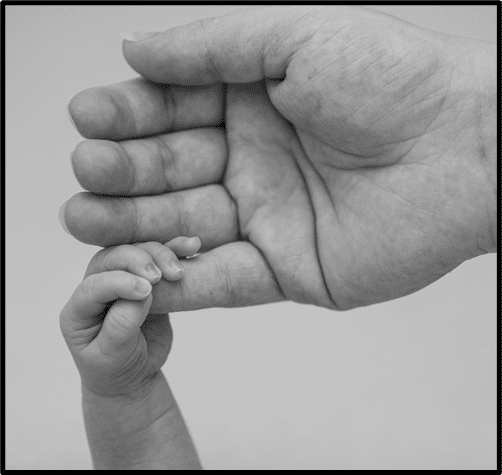As the illustration shows, memorizing is simply practicing knowing something. Remembering something for a long period of time, takes time. There's no way around it.
True memorization takes repetition over time.I often hear pastors or other confirmation educators complain about students and memory work. The common complaints are:
- Kids aren't doing it.
- Parents aren't making kids do it.
- I (the teacher) am the only one who cares.
- I don't have any leverage, so why expect it?
I was a professional educator of middle and high school students for many years and wrote two books on confirmation called
The Art of Teaching Confirmation, and its companion called
The Art of Teaching Confirmation Resources to help confirmation educators understand why
how they teach makes a difference. There is important information in those books regarding why we don't want kids to stop memorizing, how we can get parents on board, and what confirmation educators need to change to make it happen, as well as resources to help with that. There are two areas that I want to encourage:
- Expectations
- Accountability
EXPECTATIONS
Make sure they know you expect it. Let's be honest, if kids think they can get away with not doing it, they're not going to do it. If parents don't think it's important (because they don't remember anything they memorized), they won't make their kids do it either... unless you expect it.
- Kick-off Meetings - At the beginning of every year, I have a kick-off meeting to make sure everyone is on the same page with what's required. Never assume they know what you expect. Not only do I provide a calendar or a simple syllabus, but I talk about behavior and academic expectations.
First, I ask parents to think about why they want their kids to be confirmed. They should know the reason and it helps the teacher know where they're coming from. Then, I hand out FAQs (Frequently Asked Questions) and we talk about them. They include some history and tradition of confirmation, its purpose, how parents can support their kids through confirmation, how parents can also support the pastor, what is taught, why memorization and sermon notes (connections) are important, and why confirmation has a place in our culture today.
Then, I talk about expectations. I go over what I expect of their behavior and let them know that I will contact them if their child behaves in a way that consistently disrupts class. Next, I share the requirements for participating in the privilege of confirming their faith. Finally, I ask a very important question: "Why do they think I am here?" This one is unexpected. I explain that I'm not here because it's my job. I think confirmation is important to their kid's faith and why it's important to start talking about it at this age. "If you're not going to expect your child to do the work or don't think the work is important, what do you want them to get out of it? If they haven't learned anything, what is it that they are confirming that they believe and why do they believe it? What is the benefit for them and what does it teach them about their faith or the church? Confirmation is not a requirement for salvation, but teaching about God and His plan for their salvation is. The FAQs are also discussed in The Art of Teaching Confirmation Resources, and there's a post about them on this website
here.
ACCOUNTABILITY
- Checklists - I know people don't think they should officially keep track of grades for confirmation, but we don't keep track to grade the kids. We keep track of their progress for informational purposes. I use a simple minus, check mark, and plus. (Minus: not much effort, Check mark: acceptable effort, Plus: good or great effort)
I promise it will help you if parents know you're keeping track of attendance and work. If you don't keep track, when you say a student isn't doing their work, you have no data to fall back on. Also, all it takes is a check mark every week and you have everything you need to let students and parents know that you care about them learning, enough to pay attention to how many classes they've missed and what work they need to make up. On the confirmation page of this website there are checklists. Use one or create your own. Resources for this are also in my book, The Art of Teaching Confirmation Resources.
- Progress Reports - A progress report is never a bad idea. It periodically lets parents know how things are going. Since class usually only meets weekly, I only give one once a year, unless it's obvious that students aren't doing their work. They can either be printed or via a phone call. If a student is missing work two weeks in a row, a parent should be notified. It's always better to take care of these things right away. It doesn't help to wait until they're months behind to speak up about it.
Unfortunately, a lot of parents don't think confirmation work or memory work is important because most kids/people only remember it until they say it and after that it's gone, because of how we do it. Basically, if you make somebody memorize something and then they never say it again, they will forget it almost immediately. Where the brain and memory is concerned, use it or lose it is absolutely true.
Why don't kids see the value in it? Because they're 13-14 years old. No matter how many cheers or pep talks they hear, they're not going to care. They're kids. They need some real consequences for not doing the work. That's why we need the parents to understand why it's important.
LEVERAGE
Without grades, there are very few options for leverage. It's a volunteer class and we worry that if we push, parents will take their kids out. Nobody wants that. What are the options? Confirm kids who have done nothing all year and know nothing about their faith? What is the point in that?
The reality is, there is leverage, but we have to be careful how we use it. No pastor wants to tell a parent that their child hasn't done any work and won't be confirmed, but again, that's your strongest leverage. It's the last chance, but it's there. There are other things to do first.
- Have a chat with the student and ask them why they seem to not be interested in doing the work or knowing this information. Why not?
- Have a chat with the parents and let them know of the problem. They may share with you some challenges their child has with the work. Adjust it.
- Let them know that confirmation can be done later, if the student is not ready.
- Remind them that confirmation is not required for salvation.
The bottom line is that we should never confirm a child who has learned or thought about nothing with regard to their faith, but you don't know what they believe until you have a chat with them and ask.
OPTIONS
We don't have to do it the way it's always been done where kids go home, say it to their parents before class the next week, somebody initials or signs the form, and it's considered memorized. Saying it once and getting a form signed doesn't mean they've memorized anything. Read more about the brain and memory in
The Art of Teaching Confirmation. Here are a few options:
- Give them a list of what they need to memorize throughout the year and let them do it at their own pace. You still need to keep track of what they have known and it's good to have random memory checks in class. Let them say anything they know, but they can't say the same one every time.
- Put the memory work on the pre-service worship slides every week and right before the service starts, have everyone say it together.
- This one is my personal opinion, however, I prefer to have students memorize God's word over the What does this mean? information in the catechism. Once they say that in class, nobody every repeats it. When you're 14, it's not long before those synapses are overwritten.
- Put time aside for a quick memory review each week where you ask a question and they need to answer it with one of the memory verses. For example, ask a question about baptism and they can respond with Acts 2:38, Mark 16:16, Romans 6:3-4, etc. That also helps them apply it.
For the record, most of the adults in the pews on Sunday don't remember their memory work. Give them a review too! Change the verse every month.
"Lent is just around the corner. Are you planning on giving up something for Lent, as some denominations require? From the perspective of the LCMS, "giving something up for Lent" is entirely a matter of Christian freedom. It would be wrong, from our perspective, for the church to make some sort of "law" requiring its members to "give something up for Lent," since the Scriptures themselves do not require this. If, on the other hand, a Christian wants to give something up for Lent as a way of remembering and personalizing the great sacrifice that Christ made on the cross for our sins, then that Christian is certainly free to do so--as long as he or she does not "judge" or "look down on" other Christians who do not choose to do this."









